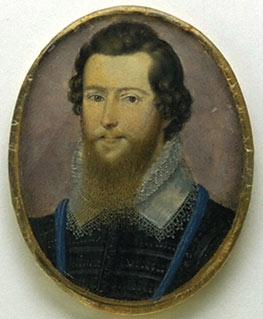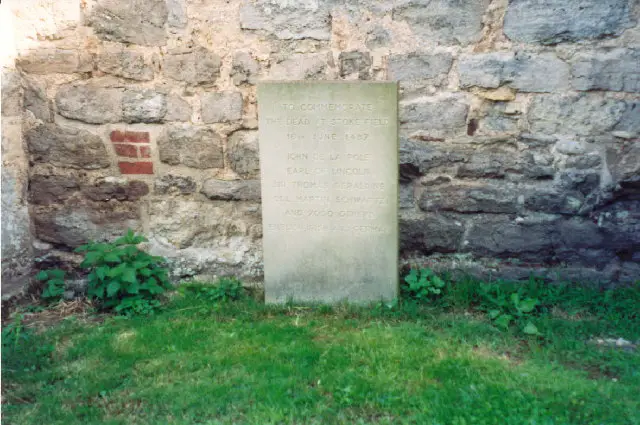The tin miners of Cornwall were rather unhappy with their king. In 1496, Henry VII attempted to introduce new legislation regarding tin-mining into the Cornish Stannary Parliament but he was met with opposition. He then suspended the Stannary Court, meaning that the tin-miners lost the privileges the Stannaries had offered them since the early 1300s and were no longer exempt from civil jurisdiction or from paying taxes. Then, in 1497, heavy taxes were levied for the King to finance his campaign against Scotland and Perkin Warbeck. This was too much for the Cornish people and rebels led by Michael an Gof, a blacksmith, and Thomas Flamank, a lawyer, decided to march to London to air their grievances and call for the execution of Archbishop Morton, the King's Lord Chancellor.
As the rebels marched through Somerset, they were joined by James Tuchet, 7th Baron Audley. They then marched through Bristol, Salisbury and Winchester before moving into Kent where they hoped to drum up support from the county that had risen up under Jack Cade. Unfortunately, they were unsuccessful in their mission. By the time they arrived at Blackheath on 16th June, Henry VII had diverted the army he'd sent north with Giles, Lord Daubeney, back south. Daubeney's forces numbered an estimated 8,000 and the rebels had started with 15,000 but by the morning of 17th June many had deserted leaving the Cornish rebels with 9-10,000 men while the King's mustering brought the royal forces to about 25,000. Lords Oxford, Essex and Suffolk attacked the rebels from the right and the rear, while Daubeney's forces attacked them at the front. The Cornish archers at the front, at Deptford Bridge, looked as if they were going to beat Daubeney at first but Daubeney's spearmen finally took the bridge. The rebels were lacking in horses and artillery and just could not match the royal forces. An Gof was finally forced to surrender after losing somewhere in the region of 1-2,000 men.
1,500 rebels were taken prisoner and although An Gof managed to escape the battlefield and flee to Greenwich, he was captured and taken to the Tower of London. Audley was beheaded on Tower Hill on 28 June 1497, while An Gof and Flamank were hanged, drawn and quartered at Tyburn on 27 June 1497.
Picture: Commemorative plaque in Cornish and English for Michael Joseph the Smith (An Gof) and Thomas Flamank mounted on the north side of Blackheath common, south east London, near the south entrance to Greenwich Park. Taken by Chris Angove, October 2006. From Wikimedia Commons.




Leave a Reply